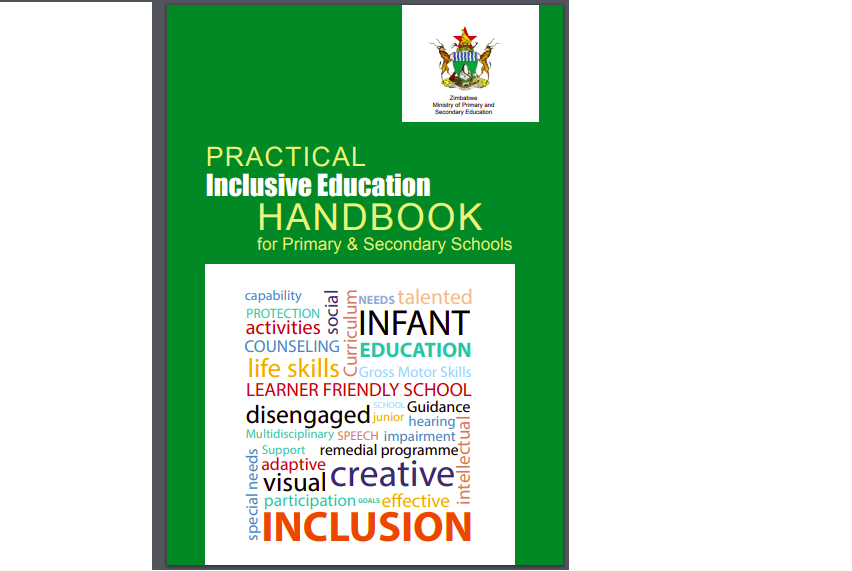by Innocent Mujeri
The Ministry of Primary and Secondary Education has developed a practical inclusive education handbook meant to guide school heads, teachers and parents in embracing learner diversity in line with the inclusivity principle in the competence-based new curriculum.
The handbook which subscribes to the principles of the Curriculum Framework (2015 -2022) that include inclusivity, gender sensitivity, equity and fairness, respect (Unhu/Ubuntu/Vumunhu) and accountability among many other principles, is meant to strengthen the practice of inclusive enrolment, teaching and learning processes as well as the provision of learner support services at every school.
The practical handbook is also part of a package of measures to enhance the education sector performance in terms of equitable access to quality learning environments with inclusive pedagogical practices that benefit all learners.
Ultimately, this handbook is expected to strengthen the capacity of every school and individual teachers to translate the curriculum principles of inclusivity, equity, and gender sensitivity and learner centeredness, among others, into practical reality, thus ensuring a strong foundation for inclusive societies, in line with the Constitution of Zimbabwe.
The Ministry further said the new education handbook is a direct response to common questions raised by heads of schools, teachers and parents on how best to embrace learner diversity in mainstream schools and non-formal learning institutions, in line with the inclusivity principle in the Curriculum Framework (2015-2022).
The education handbook is also expected to be a reference document to enhance supervision, monitoring, evaluation, inspection, in service training as well as material development.
This education handbook is further intended to trigger the sharing and transformation of innovative ideas into practice among educationists, with support from stakeholders, for the benefit of all learners, including those with disabilities among others in mainstream schools, while special schools would play a different role from the past.
It is envisaged that, this handbook will contribute towards the inclusive implementation of the curriculum at the Infant, Junior and Secondary Education levels.
The new education handbook is expected to speak to the needs of education 5.0 model, which put more emphasis on production of goods and services by universities and polytechnics.




